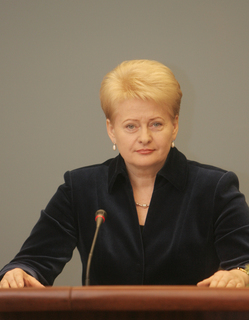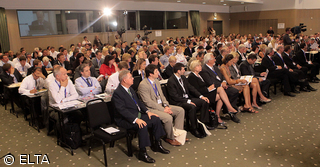Residual anger directed toward Microsoft might be driving the European investigation
Published:
21 February 2003 y., Friday
The software giant lost friends in many nations when it instituted Licensing 6, an expensive upgrade program that savaged some IT budgets.
The complaints are essentially the same, but the venue is different. Microsoft is under attack again for leveraging its monopoly and bundling its products, but this time its lines of defense are concentrated on the European front.
The European Union Antitrust Authority has been pursuing an investigation into the software giant's business practices for three years. The case, which had been drawing to a close, gained additional steam recently when a new complaint was fired into the fray by the Computer and Communications Industry Association, a U.S.-based trade group that was disappointed with the outcome of the U.S. antitrust settlement.
In fact, it seems that so far, Europe's antitrust investigation has been more tenacious than the one in the United States. Why is that -- and how much muscle does Europe have to bring down one of the world's most powerful companies? Does Europe hate Microsoft?
That might be too broad an assessment. But Ted Schadler, principal analyst with Forrester Research, told that Microsoft's succeed-at-all-costs mentality might engender more hostility across the Atlantic than it does in the United States. "Microsoft is not as naturally respected in Europe as it is here."
Šaltinis:
ecommercetimes.com
Copying, publishing, announcing any information from the News.lt portal without written permission of News.lt editorial office is prohibited.
The most popular articles
 A specific EU budget line for the new EU stabilisation mechanism should be created as soon as possible, to ensure its credibility, Council, Commission and Parliament negotiators agreed at a three-way meeting on Wednesday.
more »
A specific EU budget line for the new EU stabilisation mechanism should be created as soon as possible, to ensure its credibility, Council, Commission and Parliament negotiators agreed at a three-way meeting on Wednesday.
more »
 New EU rule will help phone-users avoid astronomical bills for web-surfing and downloads abroad.
more »
New EU rule will help phone-users avoid astronomical bills for web-surfing and downloads abroad.
more »
 The Communication approved today by the Commission builds on the principles presented on 12 May to reinforce the economic governance in the European Union.
more »
The Communication approved today by the Commission builds on the principles presented on 12 May to reinforce the economic governance in the European Union.
more »
 Eurostat report just published shows that the crisis has brought some lower taxes.
more »
Eurostat report just published shows that the crisis has brought some lower taxes.
more »
 New legislation is needed to ensure fair returns to farmers and transparent prices to consumers, by enforcing fair competition throughout the food supply chain, said Agriculture Committee MEPs on Monday.
more »
New legislation is needed to ensure fair returns to farmers and transparent prices to consumers, by enforcing fair competition throughout the food supply chain, said Agriculture Committee MEPs on Monday.
more »
 Fish imports play a crucial role in supplying the European market, yet fisheries and aquaculture are strategic sectors that do not lend themselves to a purely free-trade approach, believes the EP Fisheries Committee.
more »
Fish imports play a crucial role in supplying the European market, yet fisheries and aquaculture are strategic sectors that do not lend themselves to a purely free-trade approach, believes the EP Fisheries Committee.
more »
 I will support every proposal that strengthens cooperation among the European Union's Member States and serves Lithuania's interests," President of the Republic of Lithuania Dalia Grybauskaitė said at the meeting with EU Member States' ambassadors resident in Lithuania.
more »
I will support every proposal that strengthens cooperation among the European Union's Member States and serves Lithuania's interests," President of the Republic of Lithuania Dalia Grybauskaitė said at the meeting with EU Member States' ambassadors resident in Lithuania.
more »
 The fourth World Lithuanian Economic Forum “High tech innovation & investment: local to global” will start in London on 22 June.
more »
The fourth World Lithuanian Economic Forum “High tech innovation & investment: local to global” will start in London on 22 June.
more »
 Lithuania aims for the five Nordic countries and three Baltic States to become single community of values, which would be linked by a versatile quality of democracy, security and everyday life.
more »
Lithuania aims for the five Nordic countries and three Baltic States to become single community of values, which would be linked by a versatile quality of democracy, security and everyday life.
more »
 MEPs decided on Wednesday to create a special committee to prepare for the EU's next long-term budgetary framework.
more »
MEPs decided on Wednesday to create a special committee to prepare for the EU's next long-term budgetary framework.
more »